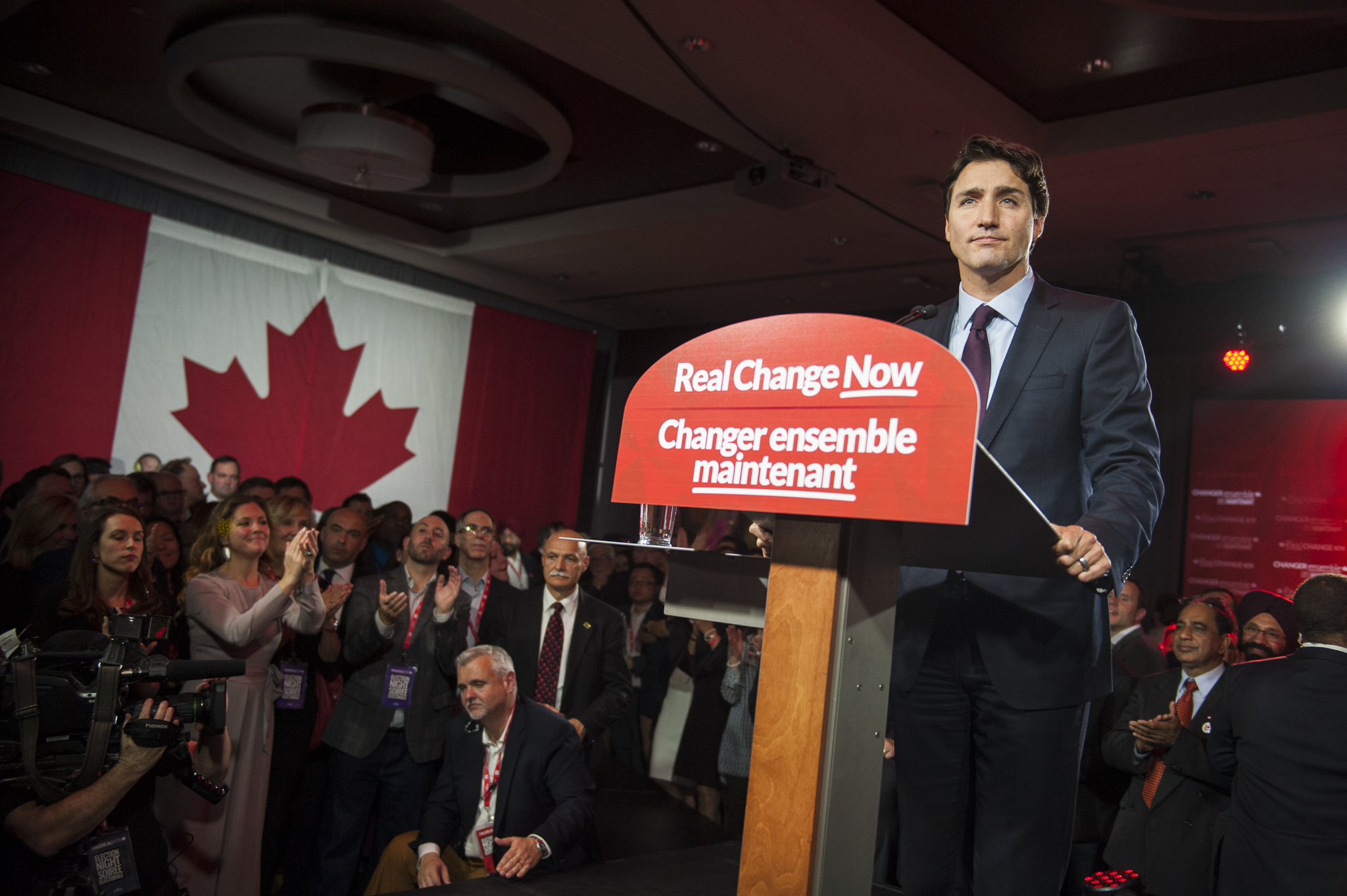Why the media focuses more on Trudeau’s image rather than politics
In the eyes of the international media, Canada has always been considered America’s dorky, progressive neighbour to the north and relegated to obscurity as a result. The image of a barren cultural wasteland, populated by hockey enthusiasts drinking Molson has dominated Canada’s foreign reputation.
Until 2015, that is. Canada went through a complete cultural makeover. Suddenly, Canadian musicians were everywhere. Artists like The Weeknd, Drake and Justin Bieber released new music and dominated the Billboard charts, pleasing their legions of loyal fans. Quebec-based director Xavier Dolan emerged as new icon in the film industry, winning the Grand Prix at the Cannes Film Festival as well as directing Adele’s spectacular Hello video.
The height of this phenomenon came with the election of Justin Trudeau in October, 2015. The young, good-looking, progressive prime minister was the antithesis of the arduous Harper Decade and breathed a sense of life and excitement into Canadian politics. Something that has not been seen since the election of his father into office some 47 years prior.
The Guardian newspaper in the UK even dubbed this moment in time as Canada’s very own “cool Britannia,” harping back to the “British Invasion” of the 1960s. By some anomaly, for once when the word ‘cool’ was used to describe Canada, it was not in reference to its climate.
Since 2015 however, the coverage of Justin Trudeau in the national media has increased by 40 per cent, according to the same report. And, unlike his predecessors, the coverage has been overwhelmingly positive.
The reason for this increase in positive coverage is mainly due to “the [tabloid] magazine style reporting” of Justin Trudeau, said Jean-Francois Dumas, president of Influence Communication, as quoted in Maclean’s magazine.
Throughout Trudeau’s time in office, national news outlets including the The Toronto Star, Vice Canada, and La Presse have opted to publish an abundant amount of fluff pieces about the Prime Minister. His many summer shirtless sightings, photo-ops with pandas, and his luscious locks has reduced many of Canada’s most prestigious publications to the same level as menial celebrity gossip mags.
It would seem as though “Trudeaumania” part II has firmly rooted itself in Canadian media’s prime-ministerial commentary, baring resemblance to a communist state’s media coverage of their glorious leader.
Many could argue that this harmless ‘fluff’ is exactly that, and I would tend to agree, so long as this ‘fluff’ does not inhibit the process of meaningful conversation in the media. Since his election, it seems as though the Trudeau administration has been covered with a cloak of invincibility and has been seemingly impervious to any scandal.
Take the 2016 “Three Amigos Summit” for example. It is the annual meeting of the heads of government of Canada, Mexico and the United States, which took place in Ottawa in June. The important issues discussed during this year’s summit included national security, human rights and the environment.
However, much of the coverage centered around a fan fiction-like narrative of the bromance between three relatively good looking leaders, with many articles—such as Vice—reporting on the awkward three-way handshake between the commanders. This is particularly shocking considering the fact that Mexican President Enrique Peña Nieto was accused of ordering the execution of eight peaceful protesting teachers’ union members and that Barack Obama had criticized Canada’s involvement in NATO, according to Reuters. Both of these issues did not receive a lot of coverage on a national level.
Canadian news outlets are severely failing their audiences. The job of the media is to be critical and journalists play a crucial role in the democratic process by holding politicians accountable and keeping them honest. Recently, however, it seems that news outlets are more concerned with sharing the latest shirtless Trudeau meme than offering a meaningful, in-depth analysis of this government’s policies and actions.
While we may all be enjoying Canada’s fleeting moment in the sun, it is my hope that we don’t wake up burned because of it.
